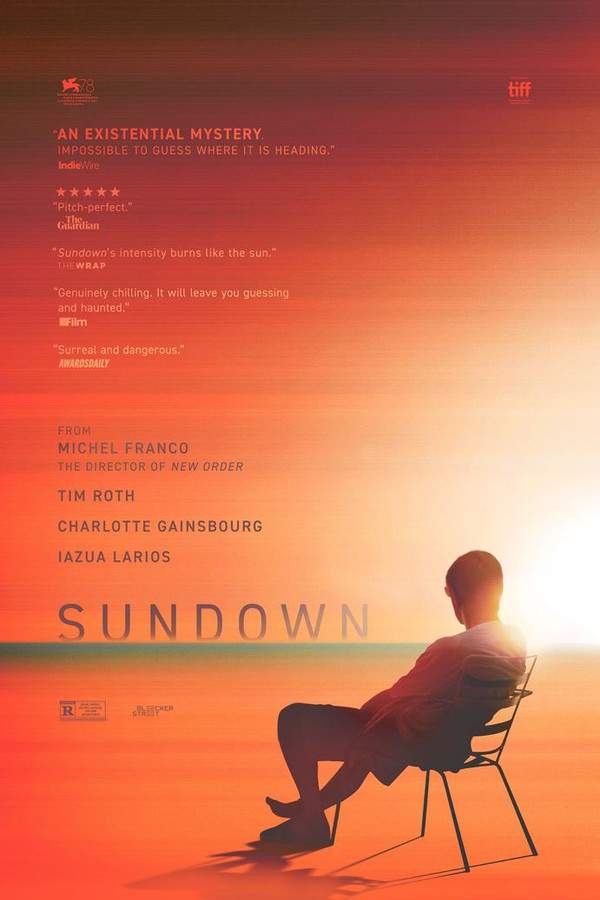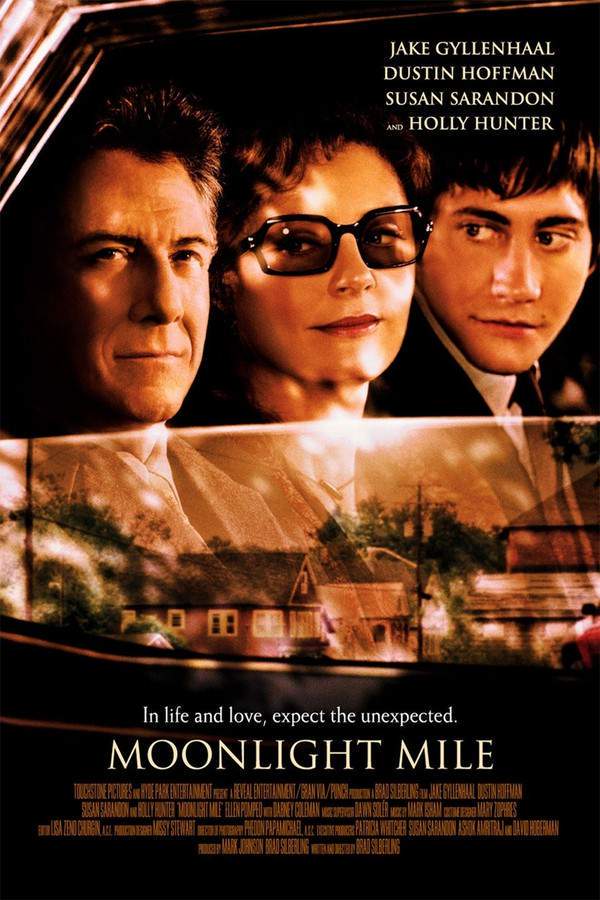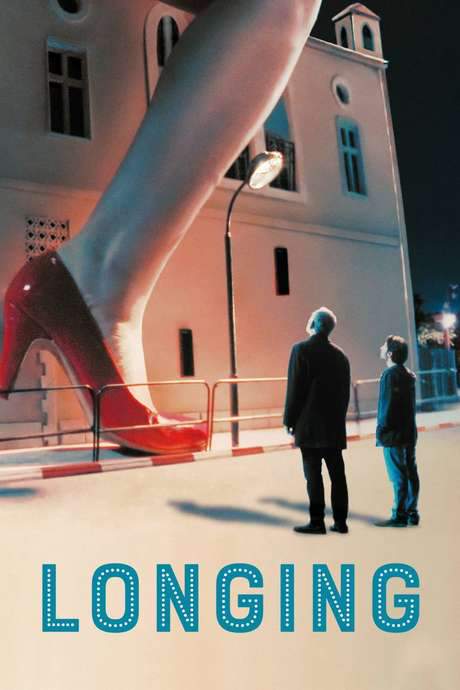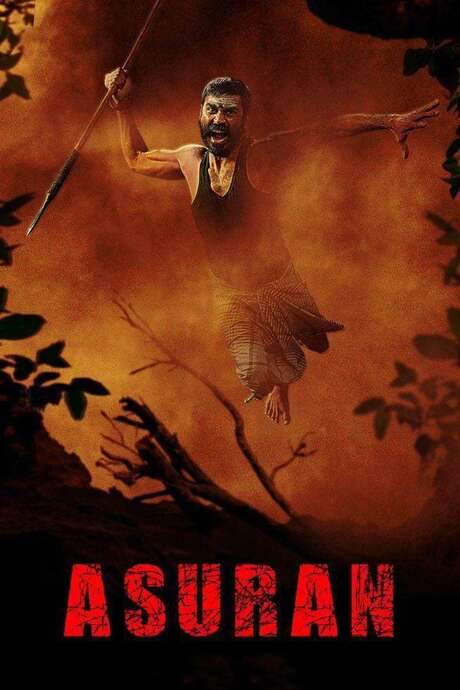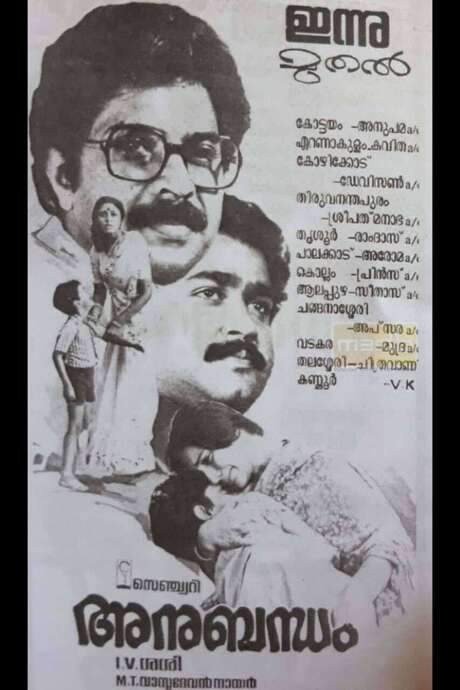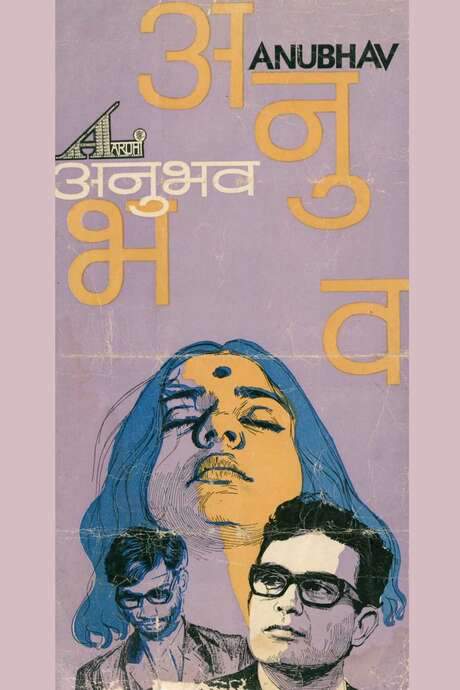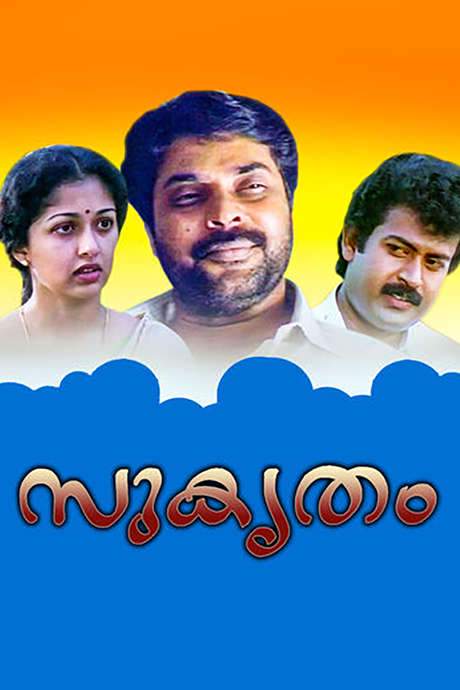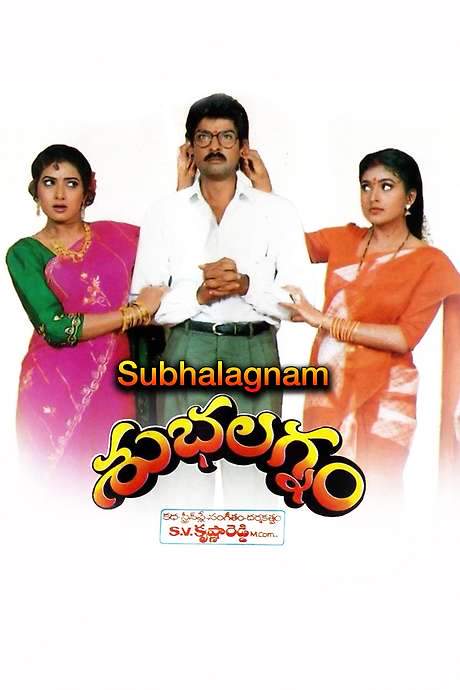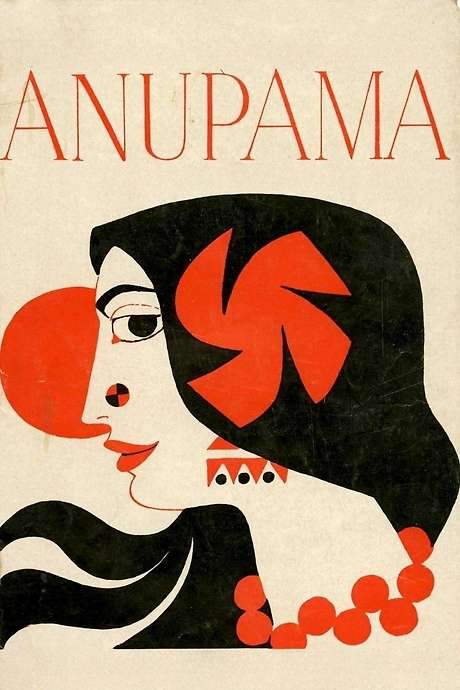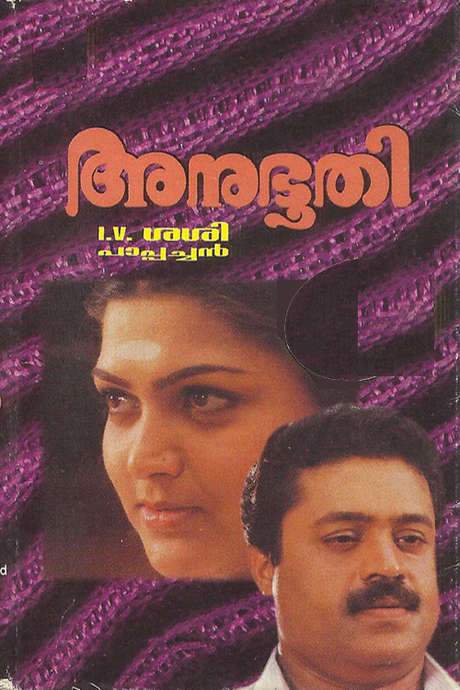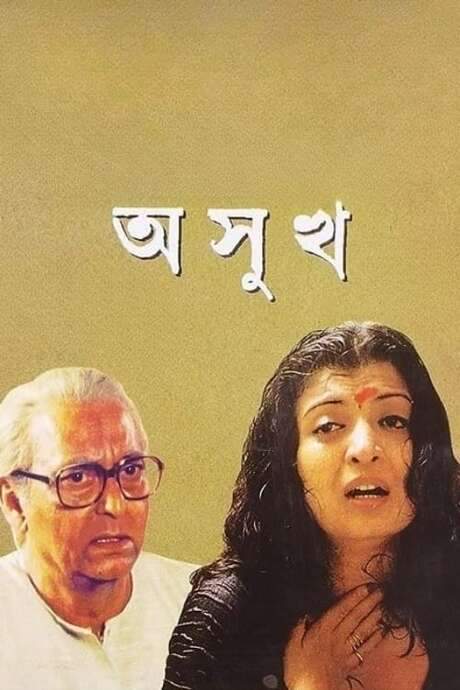
Asukh
Year: 1999
Runtime: 138 mins
Language: Bengali, Bangla
Director: Rituparno Ghosh
Plagued by anxiety and humbled by circumstance, Sudhamoy is compelled to rely on the income his daughter brings home. When his wife suddenly becomes ill and is admitted to the hospital, his fragile stability is shattered, forcing him to confront his fears and the weight of responsibility.
Warning: spoilers below!
Haven’t seen Asukh yet? This summary contains major spoilers. Bookmark the page, watch the movie, and come back for the full breakdown. If you're ready, scroll on and relive the story!
Asukh (1999) – Full Plot Summary & Ending Explained
Read the complete plot breakdown of Asukh (1999), including all key story events, major twists, and the ending explained in detail. Discover what really happened—and what it all means.
Rohini Choudhury is a famous film star who finds herself teetering on the edge of a breakdown. In a moment of raw pain, she asks her ex-boyfriend if he still remembers her, and when he says yes, she doubts him anyway. She reaches for the medicine box and swallows three to five sleeping pills, insisting that whatever she does should not affect him. Aniruddha Majumdar tries to stop her, but the overdose happens before he can intervene, and the act becomes a stark confession of hurt that she cannot keep inside any longer. The revelation behind her bitterness unfolds quickly: he had left her for another girl, Mrittika.
The film layers Rohini’s heartbreak against the backdrop of her public life. She once brought Mrittika into the industry, and the pain of that decision—along with Aniruddha’s affair—cuts deep. Rohini confronts him several times, urging him to tell the truth, but he evasively dodges the reality, leaving her even more wounded. While she wrestles with the ache of betrayal and a growing sense of isolation, she learns that her mother is hospitalized with a high fever, pulling her back into family ties she has been trying to distance herself from.
Her father, Sudhamoy Choudhury, becomes a central figure in the crisis. He oscillates between concern for his daughter and the quiet demands of his own hardship, a dynamic that the film portrays with quiet realism. Rohini’s bitterness often translates into a sharp withdrawal—she lies to avoid her father’s calls and hides her true emotions—yet the old man keeps trying. He worries not only about Rohini’s immediate crisis but also about the toll their precarious relationship takes on his own dignity. The screenplay captures the tenderness of a father who, even when he is stretched thin, fights to be a steady beacon in the darkness. When power cuts hit, he steps up to fetch a torch for Rohini, embodying a protective instinct that is as much about guiding as it is about shielding.
The domestic arc deepens as Rohini observes the lasting, if imperfect, love between her parents. Her father embodies the role of a devoted husband to Geeta Choudhury; his daily hospital visits, the careful selection of medicines, and the small, hopeful moments during visiting hours all speak to a love that endures even when the world seems broken. Rohini clings to this example as a counterpoint to her own fractured romance, and she repeatedly finds solace in the memory of her parents’ relationship, which convinces her that love can still exist in society, even after betrayal.
As the story unfolds, Rohini’s suspicion begins to gnaw at her again. When her mother’s fever returns after discharge, doctors suggest a second opinion and an HIV test, rationalizing it as a precaution rather than a condemnation. The scene is handled with care, showing Rohini’s fear and bias colliding with medical reality. She fixates on the possibility that the needles used for her mother’s treatment were not sterilized, and she questions every detail, even as her father answers calmly—he always bought disposable needles, he insists. The film uses this moment to address AIDS awareness in Bengali cinema, treating the topic with sensitivity and avoiding sensationalism while acknowledging the deep anxieties it can provoke.
The tension between fear and trust comes to a head when the test results finally arrive: Rohini’s mother does not have AIDS. The relief is palpable, but the aftermath is more complex: Rohini must confront the possibility that her own mind has been magnifying fear into certainty. In a pivotal turning point, she admits her misjudgments and opens up to her father with a heavy heart. The moment is intimate and quietly restored, as she consoles him as much as he consoles her. Her father, in turn, forgives her but also gently reminds her of a question she once posed in an interview—that there is no more love and trust left in society. The scene ends with Rohini choosing silence over defensiveness, and a soft, earned forgiveness from a daughter who finally sees the larger picture.
Across its careful, empathetic portrayal of family ties, fidelity, and the shadows of doubt, the film remains anchored in its human center: the bond between Rohini and her father, the enduring love of Geeta for her husband, and the slow, sometimes painful path toward understanding oneself and others. By the end, Rohini’s realization—that fear can warp reality, and that healing often begins with acknowledging one’s own role in the hurt—emerges as a quiet triumph. The final moment is less about resolution than about a renewed sense of connection: a daughter apologizing to a father, and a father accepting her with the steadfastness that only true love can offer.
Last Updated: October 07, 2025 at 09:14
Explore Movie Threads
Discover curated groups of movies connected by mood, themes, and story style. Browse collections built around emotion, atmosphere, and narrative focus to easily find films that match what you feel like watching right now.
Movies about quiet family resilience like Asukh
Stories where ordinary families endure illness, betrayal, and quiet emotional trials.Discover films like Asukh that explore the quiet strength of families enduring hardship. If you appreciated the tender, realistic portrayal of a family confronting illness and betrayal in Asukh, this thread features similar dramas focused on parent-child relationships, forgiveness, and enduring love amidst emotional distress.
Narrative Summary
Narratives in this thread typically follow a linear, character-driven path where a family's stability is shattered by a crisis—be it illness, a secret, or a betrayal. The story unfolds slowly, focusing on the internal emotional states of the characters as they grapple with responsibility, fear, and the possibility of reconciliation, often leading to a bittersweet resolution.
Why These Movies?
These films are grouped by their shared focus on realistic family dynamics under duress. They possess a melancholic, somber tone, a slow, deliberate pacing that allows for introspection, and a heavy emotional weight derived from themes of illness, mental health, and the complex, enduring nature of familial love.
Slow-burn melancholy dramas like Asukh
Character studies steeped in a quiet, pervasive atmosphere of anxiety and sorrow.Find movies similar to Asukh that capture a mood of quiet anxiety and melancholic reflection. If you were drawn to the slow-paced, introspective feel and the heavy emotional weight of Asukh, this thread highlights other character-driven stories with a somber tone, realistic dilemmas, and a focus on mental health.
Narrative Summary
The narrative pattern here is less about external plot twists and more about the gradual unfolding of a character's internal world. The conflict is often psychological, centering on confronting fears, past mistakes, or the burden of circumstance. The journey is inward, leading to a quiet, hard-won understanding or a bittersweet acceptance of reality.
Why These Movies?
These movies share a cohesive and specific vibe: a melancholic tone, slow pacing, and medium-to-high emotional intensity built from character anxiety rather than external danger. They are united by their ability to create a palpable atmosphere of sorrow and introspection, making them ideal for viewers seeking a deeply thoughtful and emotionally resonant experience.
Unlock the Full Story of Asukh
Don't stop at just watching — explore Asukh in full detail. From the complete plot summary and scene-by-scene timeline to character breakdowns, thematic analysis, and a deep dive into the ending — every page helps you truly understand what Asukh is all about. Plus, discover what's next after the movie.
Asukh Timeline
Track the full timeline of Asukh with every major event arranged chronologically. Perfect for decoding non-linear storytelling, flashbacks, or parallel narratives with a clear scene-by-scene breakdown.

Characters, Settings & Themes in Asukh
Discover the characters, locations, and core themes that shape Asukh. Get insights into symbolic elements, setting significance, and deeper narrative meaning — ideal for thematic analysis and movie breakdowns.

Asukh Spoiler-Free Summary
Get a quick, spoiler-free overview of Asukh that covers the main plot points and key details without revealing any major twists or spoilers. Perfect for those who want to know what to expect before diving in.

More About Asukh
Visit What's After the Movie to explore more about Asukh: box office results, cast and crew info, production details, post-credit scenes, and external links — all in one place for movie fans and researchers.

Similar Movies to Asukh
Discover movies like Asukh that share similar genres, themes, and storytelling elements. Whether you’re drawn to the atmosphere, character arcs, or plot structure, these curated recommendations will help you explore more films you’ll love.
Explore More About Movie Asukh
Asukh (1999) Scene-by-Scene Movie Timeline
Asukh (1999) Movie Characters, Themes & Settings
Asukh (1999) Spoiler-Free Summary & Key Flow
Movies Like Asukh – Similar Titles You’ll Enjoy
Asuran (2019) Detailed Story Recap
Anubandham (1985) Ending Explained & Film Insights
Asur (2020) Full Summary & Key Details
Kathbirali (2020) Story Summary & Characters
Ankur: The Seedling (1974) Full Movie Breakdown
Anubhav (1971) Detailed Story Recap
Sukrutham (1994) Film Overview & Timeline
Subhalagnam (1994) Film Overview & Timeline
Apur Sansar (1959) Detailed Story Recap
Anuradha (1960) Ending Explained & Film Insights
Anupama (1966) Full Movie Breakdown
Sahib Bibi Aur Ghulam (1962) Full Summary & Key Details
Aksuat (1997) Complete Plot Breakdown
And Quiet Rolls the Dawn (1979) Plot Summary & Ending Explained
Anubhoothi (1997) Movie Recap & Themes



















